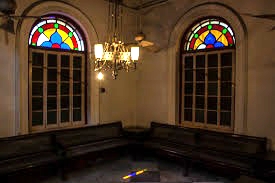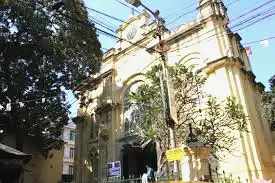It has been more than a hundred years, and one can mention with a certain pride that the holy temples or synagogues spread across the city of Kolkata have been looked after and tended with great care by our Muslim brethren. The Jewish-Muslim friendship showcases an excellent example of communal harmony and faith. This wonderful story is covered here since the friendship is from Victorian times.

Migration Period
From the year 1772, for almost 140 years, until the year 1911, Kolkata ruled as the prime capital city under British rule. The city was an active business centre and commercial hotspot that brought in foreign trade and allured many foreign establishments to invest in India.
It was during this period that numerous foreign communities migrated to Kolkata such as Armenians, Greeks, Chinese, and Jews. The community of Jews was also known as Baghdadis as they mostly originated from Iraq and Syria. By the year 1799, thousands of Jewish immigrants had settled in Kolkata to seek riches by doing trade that included silk, opium, cotton, diamonds, and indigo. In the start of the 1900s, it was believed that 3000 Jewish population were living in perfect harmony with other Indian Hindu communities.
The Growth of the Jewish Community
After World War II, almost 5000 Jewish were living in the city. At the same time in the 1940s decade, Kolkata had 4 to 5 synagogues, apart from reputed Jewish schools and Jewish business centres. It was once the largest Jewish or Judaic community in India. In recent times, these Baghdadis have started migrating towards Israel, Britain, Australia, and the United States to name a few. And sadly, Kolkata’s Jewish population has dwindled and shrunk to two-digit numbers.

Jewish Muslim Harmony
However, it remains a community that respects cross-cultural customs. Similarly, the last remaining Jews religious place of worship are well-maintained by Indian Muslim men. West Bengal has one of the highest concentration of Muslims in India. Kolkata is known for its tolerant population that enjoys religious harmony.
Millions of people who live in Kolkata include Muslims, Hindus, Jews, Buddhists, and the Sikhs. All people of different religious faith co-exist showcasing unity and brotherhood.
Hindus and Muslims join in every holy religious festival, be it celebrating Eid-al-Adha, the pious Durga Puja or caring for the 3 synagogues in the city. In today’s times, the decreasing Jewish population in India is facing a very dubious future.
The synagogues Beth El and Magen David Jewish centres of worship are now famously recognized as Indian protected heritage structures. The oldest synagogue called Neveh Shalom is also a protected heritage building according to the Archaeological Survey conducted in India.
Maintaining the Tradition
The synagogues used to be filled with hundreds of Jewish worshippers in the 1940s, especially during the festive High Holidays celebrations during Yom Kippur and Rosh Hashanah. The dedicated Muslim caretakers assist to fill in the ten spaces inside the temple for the public prayer. Out of the 24 or 25 Jews, who have continued to live in the city, many are over 50 years in age or even older. Therefore the Muslim brethren join to help maintain the traditional synagogues.
Victorian Kolkata
During the Victorian era, the very first settlers of Jewish faith in Kolkata voiced or spoke the language Judeo-Arabic and wore Arabic styled dresses. The future generations did not follow the dress code rules strictly and adopted stylish European costumes and emulated European lifestyle. They even spoke English at home.
The Victorian Jewish settlers built five beautiful synagogues in the city namely
-
Old Synagogue constructed by Shalome Cohen in the year 1825
-
Neveh Shalom Synagogue built by Ezekiel Judah
-
Beth El Synagogue was developed by David Joseph and Ezekiel Judah in the year 1856
-
Magen David Synagogue built by Elias David Joseph in the year 1884
-
Shaare Rason Prayer Hall, Maghen Aboth and Yesheebath Jacob Benjamin Elias Prayer Hall.
To visit the sacred synagogues, you need permission from the office of communal affairs located at the Jewish Girls School in Kolkata.
True Spirit of Communal Love
Even as the world reels from political and religious unrest against Muslims and Jews, kudos to Kolkata’s devoted Muslim caretakers and their unwavering commitment in helping the Jewish community in India by caring for their synagogues. These Muslim brothers remind that humanity is not dead and that two diverse communities can also share love, peace, and brotherhood.
The Jewish population in the ‘city of joy’ may become extinct in the coming years, but people will always remember the supportive Muslims who lovingly cared for the Jewish temples and opened its doors for visitors with a joyful countenance. They have earned the respect of the Jewish population in the world and have become an integral part of the Judaic heritage.